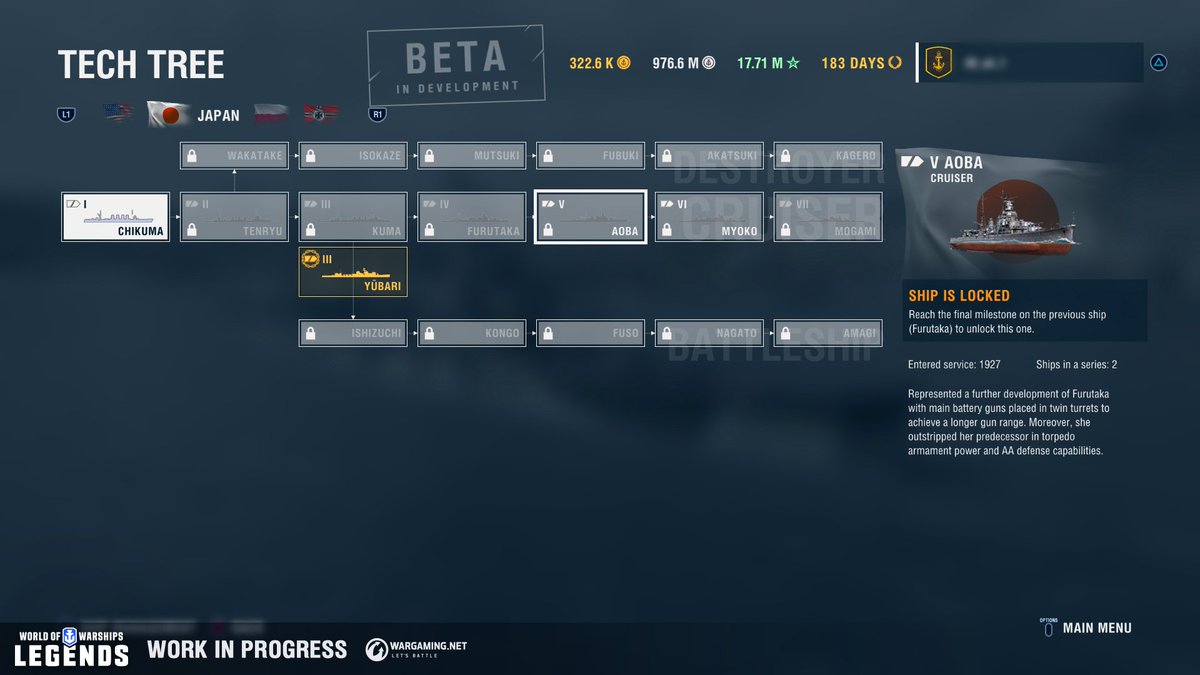

And that can be both a positive and a negative. While Wargaming experimented with a draft based model, which would let the torpedoes only hit ships that sat at a certain level in the water, the easier and simpler rule was to simply make them pass beneath destroyers, and hit everything else. However, perhaps the biggest difference you'll need to keep in mind is that deepwater torpedoes don't affect destroyers. Great against everything - just not destroyers If you can take advantage of the torpedoes' already stealthy nature - perhaps by peeking out from behind an island, and firing off a salvo while undetected - it can pay real dividends, especially with deepwater torpedoes' increased chance of causing flooding. Giving any enemy ships a much shorter amount of time to take evasive manoeuvrers, by the time a battleship spots your torpedoes, it may already be too late.

One of the biggest positives about deepwater torpedoes is that they're harder to spot, by virtue of them running lower in the water, and thus creating a smaller wake.

Set to run at a lower level in the water than standard torpedoes, these are torpedoes that come with their own set of strengths and weaknesses, which in turn will require a slightly different style of play. With excellent top speed, Pan Asian Destroyers can use islands for cover, and launch their deadly torpedoes at anyone who strays close.ĭeepwater torpedoes work a little bit differently to the other torpedoes found in World of Warships.


 0 kommentar(er)
0 kommentar(er)
